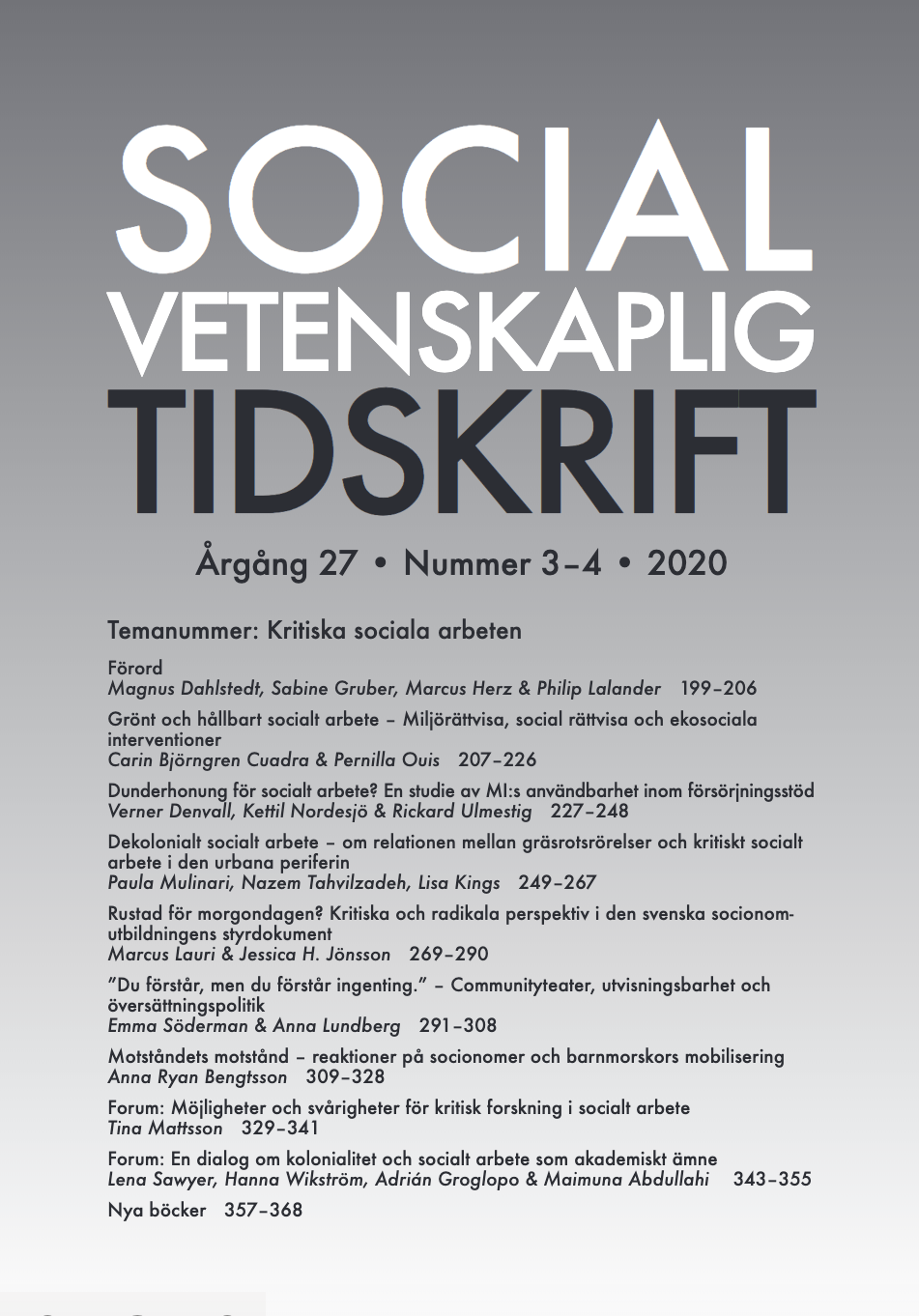Decolonial social work
: on the relation between grass-root movements and critical social work in the urban periphery
DOI:
https://doi.org/10.3384/SVT.2020.27.3-4.3664Abstract
The purpose of this article is to identify and analyze the conditions and strategies for creating a critical and decolonial social work in the urban periphery. IIn this article we explore Save the Children’s program ”On equal terms”, that during the past decade created a space for local mobilization in several areas in Sweden, with the purpose of resolving communal problems. The article identifies three elements as central for their critical social work: the empowerment of a new generation of social organizers grounded in the urban periphery; the forming of alliances for the purpose of developing new languages and strategies to address problems and solutions in alternative ways; and the construction of counter-publics through the appropriation of space for the establishment of citizen-driven meeting places. Through these strategies and conditions, a decolonial social work was formed. Inspired by theories of resistance and mobilization, we interpret the work of ”On equal terms” as an expression of the politics of public-making and border work that transcends the separation between activism and social work, giving space for new alternatives and horizons.
Downloads
Published
How to Cite
Issue
Section
License
Allt material i Socialvetenskaplig tidskrift publiceras sedan 2022 (Vol 28 Nr 2) med omedelbar öppen tillgång (open access), under Creative Commons-licensen CC BY 4.0. Upphovsrätten till innehållet tillhör respektive författare.
Allt innehåll i tidskriften är fritt tillgängligt utan kostnad och får fritt läsas, laddas ned, kopieras, delas, skrivas ut och länkas. När innehållet används måste författare, källa och licens anges. Författaren kan fritt göra sin publicerade text tillgänglig på institutionella och internetbaserade arkiv, exempelvis sitt lärosätes digitala arkiv eller andra tjänster för detta.
Inga publiceringsavgifter tas ut vid publicering i Socialvetenskaplig tidskrift.


